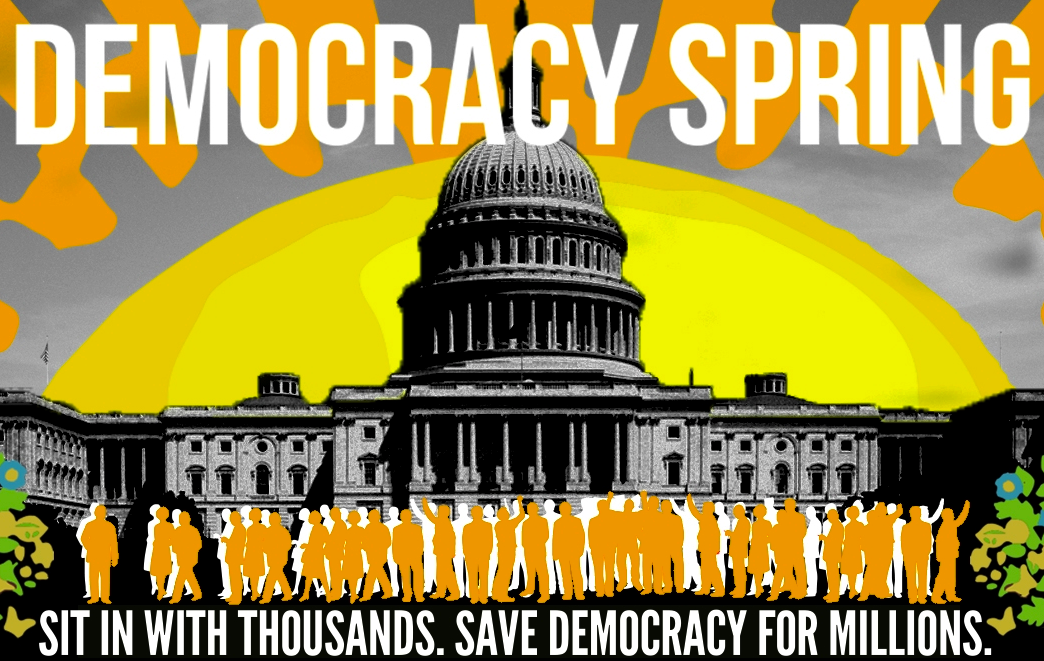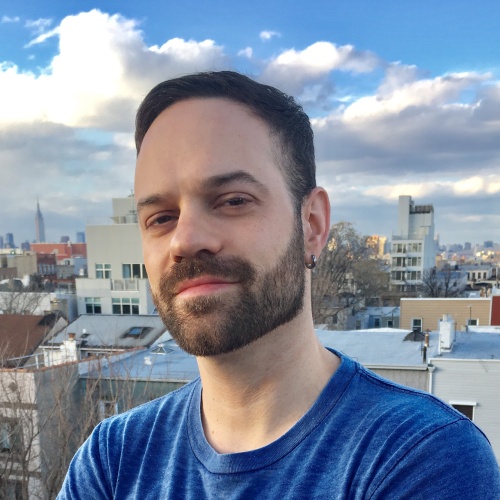Massive civil disobedience planned at U.S. Capitol to press case for fair elections

With concern and anger growing over the corrupting influence of big money in politics, activists nationwide and across the South are planning mass civil disobedience at the U.S. Capitol and solidarity events in states nationwide to demand reform.
On April 2, hundreds of Americans will gather at the Liberty Bell in Philadelphia to begin a 10-day march south to the nation's capital to engage in mass civil disobedience. Over 2,000 people so far have pledged to risk arrest.
Why are they willing to walk 140 miles and go to jail?
They are demanding that the U.S. Congress "listen to the People and take immediate action to end the corruption of big money in politics and ensure our elections are free, fair, and afford every American an equal voice, regardless of wealth."
The historic event is part of Democracy Spring, a series of protests and other actions aimed at challenging the dominance of big money in politics and voter disenfranchisement. A coalition of over 90 organizations is participating, including 99Rise, Avaaz, Democracy Matters, the Energy Action Coalition, MAYDAY.US, and MoveOn.
After the marchers arrive in Washington on April 11, they will join more protesters to commence sit-ins under the Capitol rotunda, inside the offices of representatives, and on the building's front steps and grounds, demanding that Congress take action to ensure free and fair elections. The activists are prepared to sit in for six days or more.
Organizers are asking members of and candidates for Congress to sign an Equal Voice for All People Pledge that states their support for "pro-democracy reforms including voting rights protections, anti-corruption measures, citizen-funded elections, and a constitutional amendment to overturn Citizens United."
The organizers point to four bills introduced in Congress that would achieve these goals: the Voting Rights Advancement Act, which restores the protections of the Voting Rights Act struck down by the Supreme Court in 2013; the Voter Empowerment Act, which expands voter registration and ballot access; the Democracy For All Amendment, which overturns the Supreme Court's Citizens United decision and limits money in elections; and the Government By the People Act/Fair Elections Now Act, which provides small donor matching funds and tax credits to encourage small-dollar contributions.
If Congress takes no action, the sit-ins will continue until police "send so many of us to jail that it will be the largest civil disobedience action in the United States in a generation," Kai Newkirk, Democracy Spring's campaign director and founder of pro-democracy organization 99Rise, said during a conference call about the event this week.
"Congress must be confronted and we must reckon with this issue as a nation," Newkirk added.
From April 16 to 18, an affiliated series of events billed as Democracy Awakening will take place in Washington. They will include demonstrations, teach-ins, direct action trainings, music performances, and a mass Rally for Democracy,
Among those who have pledged to risk arrest are Harvard law professor and former 2016 Democratic presidential candidate Lawrence Lessig, Fordham University law professor and New York congressional candidate Zephyr Teachout, actors Mark Ruffalo and Gaby Hoffman, and Public Citizen president Robert Weissman.
But, says Newkirk, Democracy Spring's power "is really coming from the grassroots, from folks organizing in cities and states."
Over 50 regional organizing hubs — including more than a dozen across the South from Virginia to Texas — are building grassroots support for Democracy Spring. Coordinators at each of these hubs are recruiting participants and organizing transportation to Philadelphia and Washington. Some hubs will conduct the nonviolent civil disobedience training that everyone planning to risk arrest must participate in; training will also be available in Washington during the demonstrations.
"We are at a tipping point in our democracy," says New Orleans hub coordinator Anita Daniel. "Fighting against the influence of money in politics has never been more important ... The time has come for a massive act of civil disobedience."
Maren Poitras, hub coordinator for Asheville, North Carolina, says she is "tired of witnessing the government fail to represent the majority of Americans and protect the public good, fail to address climate change, protect public health, or uphold justice. Especially after the Supreme Court's Citizens United ruling it's apparent that big money in politics is the root cause of these myriad issues — it's undermining democracy itself and the concept of one person, one vote."
Kiernan Colby, hub coordinator for Greensboro, North Carolina, noted that there are already many groups in the state working to build grassroots power. "My goal is to bring all of those organizations together so that when we march on the Capitol, our voices will be so loud that Congress can't just walk away and ignore us," he said.
Newkirk says the Democracy Spring actions "will build into what I believe will be an Occupy Wall Street moment that can reshape this election and change the media narrative and inspire folks to stand up and fight."
Tags
Alex Kotch
Alex is an investigative journalist based in Brooklyn, New York, and a reporter for the money-in-politics website Sludge. He was on staff at the Institute for Southern Studies from 2014 to 2016. Additional stories of Alex's have appeared in the International Business Times, The Nation and Vice.com.
